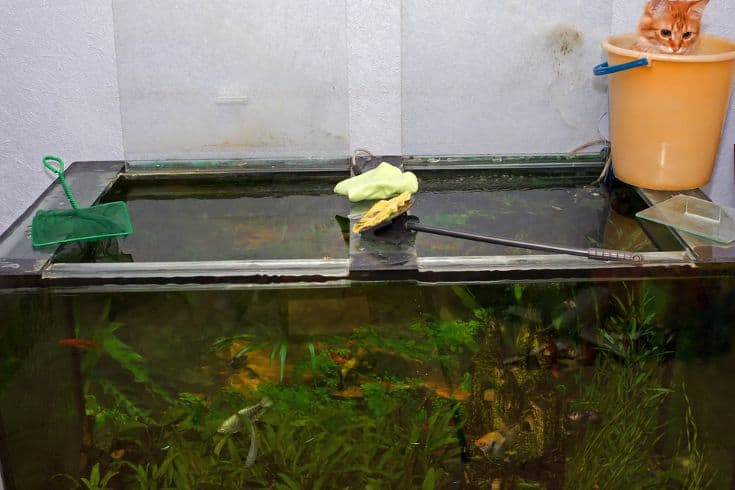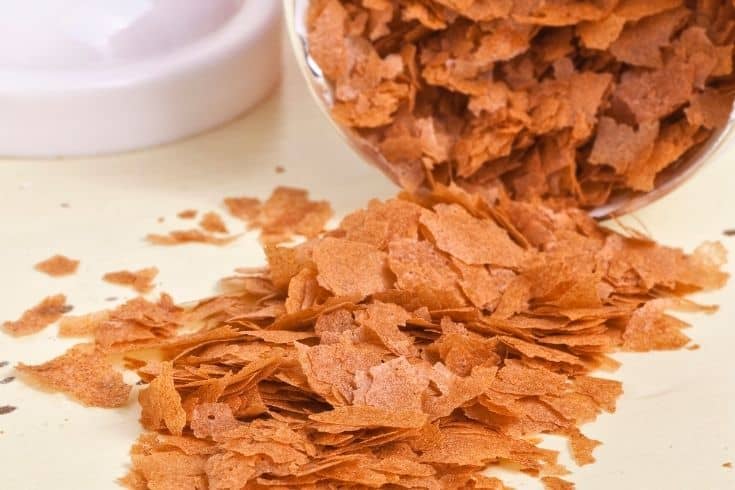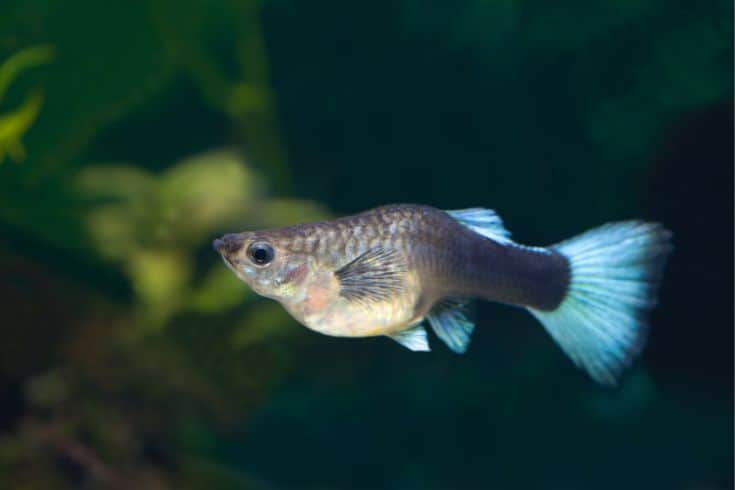It’s the stuff of nightmares – one day, your guppy is eating everything in sight, and the next, it’s refusing to eat at all. Guppies stop eating for various reasons, ranging from poor water quality to health issues. When a guppy stops eating, it’s important to take the time to determine why, as this could be a sign that your little fish is in trouble.
In this article, we’ll explore the most common causes of guppies refusing to eat and some methods for getting them to start eating again. We’ll also look at how to prevent your guppy from not eating in the future. By the end of this article, we will be able to answer the question, “Why are my guppies not eating?” and hopefully prevent it from ever happening
Why Are My Guppies Not Eating? – Potential Causes
Though there are a myriad of possible causes as to why your guppies aren’t eating, it’s good to have an idea of what the most common causes are. This understanding can help you better diagnose the problem and find a solution. Without further ado, here are some of the most common causes for why your guppies aren’t eating:
Poor Water Conditions
One of the most common reasons that guppies stop eating is poor water quality. This could be anything from an overly high or low pH, to an excessive level of ammonia or nitrates. Sometimes, hobbyists simply neglect to provide their guppies with the ideal temperatures – that is, 78-86°F. All these factors can cause stress in your guppy, making them refuse to eat.

The Solution:
In most cases, a partial water change will help improve the water conditions and get your guppy eating again. Perform a 25% water change and use a test kit to make sure the parameters are within the ideal range for guppies. A good test kit usually measures the following: pH, nitrate, ammonia, GH, and KH. You can find these test kits in strip form or with liquid droppers.
You should also invest in a tank thermometer to ensure the water stays within the optimal temperature. Some poorly made heaters can cause the water temperature to fluctuate, and this can be stressful for guppies. In their natural habitats, guppies experience very little temperature changes, so it’s important to replicate this in the tank.
If you spot or detect water parameters that are out of range, use a water conditioner to restore them. These can be found in most pet shops or online retailers and come in liquid form for easy dosing. However, it is important to avoid making too many changes all at once. You don’t want to shock your guppies by suddenly changing the water conditions too drastically.
Low-Quality Diet
Nobody expects you to feed your guppies with the finest food pellets your local fish shop offers, but it’s important to remember that guppies are notoriously picky eaters. Not only that, but they need a diverse variety of food to stay healthy. If you’re feeding them with the same food every day, or if it’s of poor quality, this could be causing your guppy not to eat.

The Solution
The first thing you need to do is get the right type of fish food. Opt for specially formulated guppy food by a reputable brand, as these have been tailored to the nutritional needs of guppies. You should also vary up their diet with a few different types of high-protein food, such as frozen brine shrimp, and if you can get your hands on some mosquito larvae. Blood worms can also work as long as they are fed sparingly.
Guppies also need a healthy amount of plant fiber in their diets, which you can provide by feeding blanched vegetables. Zucchini and cucumber are two great options, as these provide the vitamins and minerals guppies need to stay healthy. Many hobbyists also use algae wafers and flakes to supplement their guppies’ diet. Both provide a good amount of fiber and will help keep your guppy eating.
The feeding times and quantity are just as important as the quality of food. Feeding your guppies too much can lead to obesity and other health problems, while not enough will starve them. As a general rule of thumb, feed adult guppies only twice per day with small portions that they should be able to finish within two minutes or less. Remove every piece of food that hasn’t been eaten in this time.
Disease and Illnesses
Unfortunately, health issues in guppies is another com mon cause of them refusing to eat. This could be a common disease caused by a mild bacterial infection or something more severe, such as ammonia poisoning. No matter what the underlying illness may be, it causes stress and discomfort, which can lead to a fish refusing food.

The Solution
If you suspect that your guppy has an illness or disease, it’s important to get them treated as soon as possible. First, isolate the affected guppy from any other fish in the tank. This will allow you to monitor your fish closely in a hospital tank. It’s also significantly easier to administer medication and keep water conditions in check when you’re using a dedicated tank for your sick fish.
Next, you’ll need to visit your local pet store for medication. Most medications work best when added directly into the tank, but some medications come in liquid form that you can feed directly to your guppy. However, it’s important not to overdose them with medication – follow the instructions carefully and only administer as directed by a veterinarian or experienced hobbyist.
Finally, make sure you’re performing regular water changes and testing the parameters often. The vast majority of illnesses can be treated with a combination of medication and proper water conditions. A few days after the guppy is placed in the hospital tank, you should see an improvement in their appetite. And if you don’t, please visit your local veterinarian.
Pregnancy and Labor
You may already know that guppies are live-bearing fish that give birth to live young. As is the case with most species, pregnant guppies often stop eating as they approach labor. Though there’s no consensus on why this is the case, many speculate that it’s a natural process that prepares the female for labor. If this describes your guppy, you can rest assured that it’s normal and there isn’t necessarily anything wrong.
However, this doesn’t mean that you shouldn’t pay close attention to your guppy. Sometimes, a pregnant female guppy may refuse food due to stress or illness, so it’s important to monitor her closely. If she looks lethargic or is behaving abnormally, you may want to treat her for an illness or parasite.

The Solution
If you think your guppy is about to go into labor, please prepare a breeding tank or hospital tank for her. This will provide a safe and comfortable environment in which she can deliver her young without any disturbances. Once your fish has given birth, separate her from the guppy babies and observe her closely. Feed her a nutritious diet and provide her with the best water conditions for optimal recovery.
We’ve also touched briefly on pregnant females that refuse food due to stress or illnesses. Under these circumstances, it’s important to treat the female with medication and keep a close eye on her. If you think your guppy has been affected by an illness, do as you would with any other guppy – isolate her in a hospital tank and administer medications as directed.
General Stress
Last, but most certainly not least – we have general stress. This could be caused by anything from predatory behavior by an aggressive tankmate, or water conditions that are less than ideal. These forms of stress can then manifest in the form of a guppy refusing food. Although stress can be difficult to detect, it can be just as detrimental to your fish’s health.
The Solution
Ideally, you’d want to avoid the stress in the first place. This means providing your guppy with a safe and comfortable environment, as well as ensuring that they’re in tanks with tankmates of similar size or temperament.
If you already have an aggressive fish in the tank, consider placing it in a separate tank, where it won’t be able to disturb the others. It may also be a good idea to consider redecorating your tank. Sometimes, adding a few nooks and crannies in the form of tank décor and aquatic plants can give your guppies a feeling of security.
Above all, make sure to keep the water parameters in check and perform regular maintenance. This includes cleaning filters, changing out old or dirty decorations, replacing expired filter media, etc. All these will help create an environment that’s more conducive for a healthy guppy population – one with little to no stress!
Final Thoughts
Guppies refusing food is always cause for concern – this could be due to poor water conditions, diseases/illnesses, pregnancy/labor or general stress. In order to get your guppy eating again, it’s important to identify and address the underlying cause of the problem. A combination of medication and proper water conditions is usually enough for most cases.
With a little bit of patience and a whole lot of TLC, you should have your guppy back on its fins in no time. Be sure to do everything you can to prevent your guppy from stopping eating in the future – provide them with a comfortable habitat, feed them high-quality food, etc. Thanks for reading, and please share this article with anyone who may find it useful!
